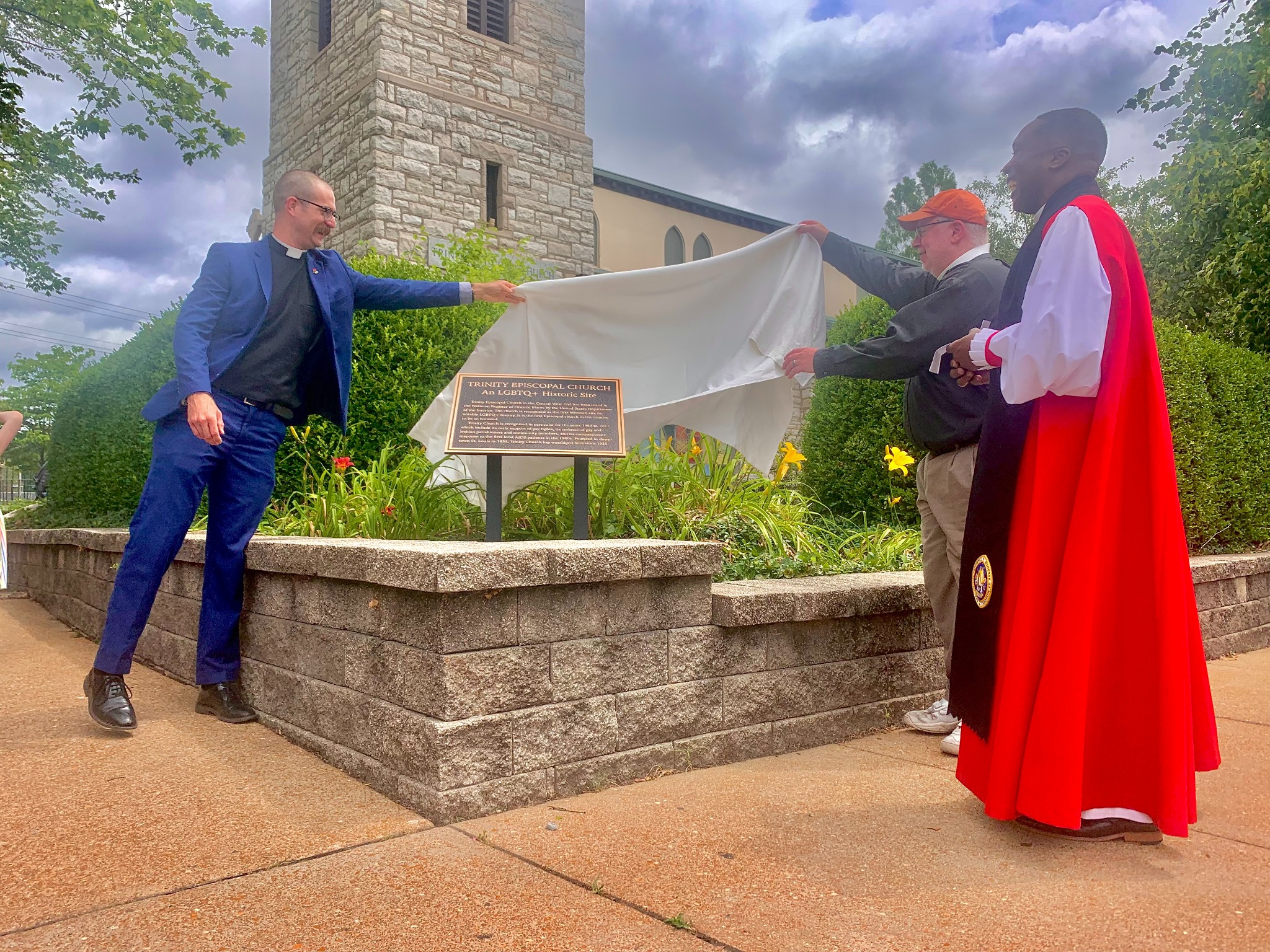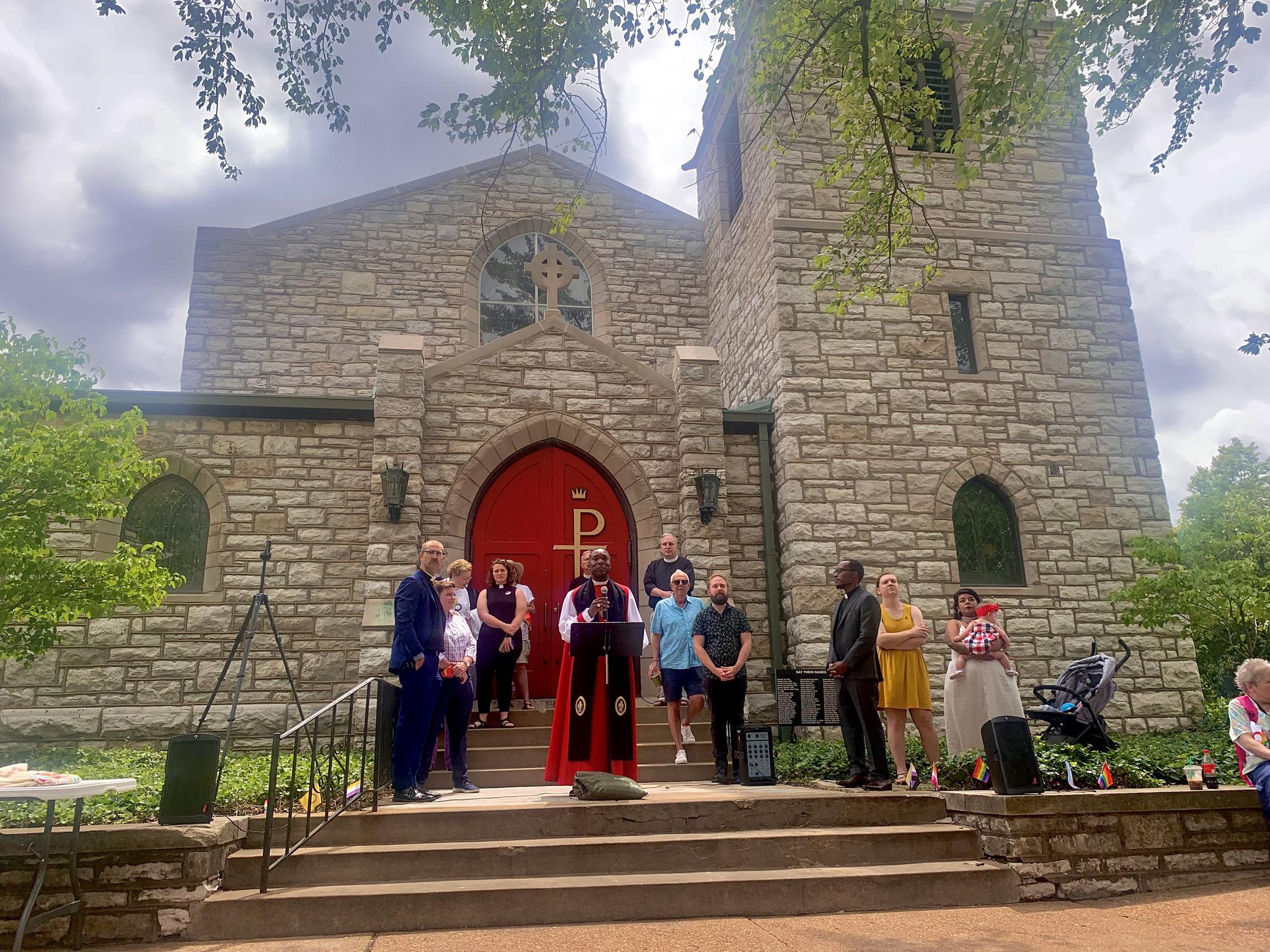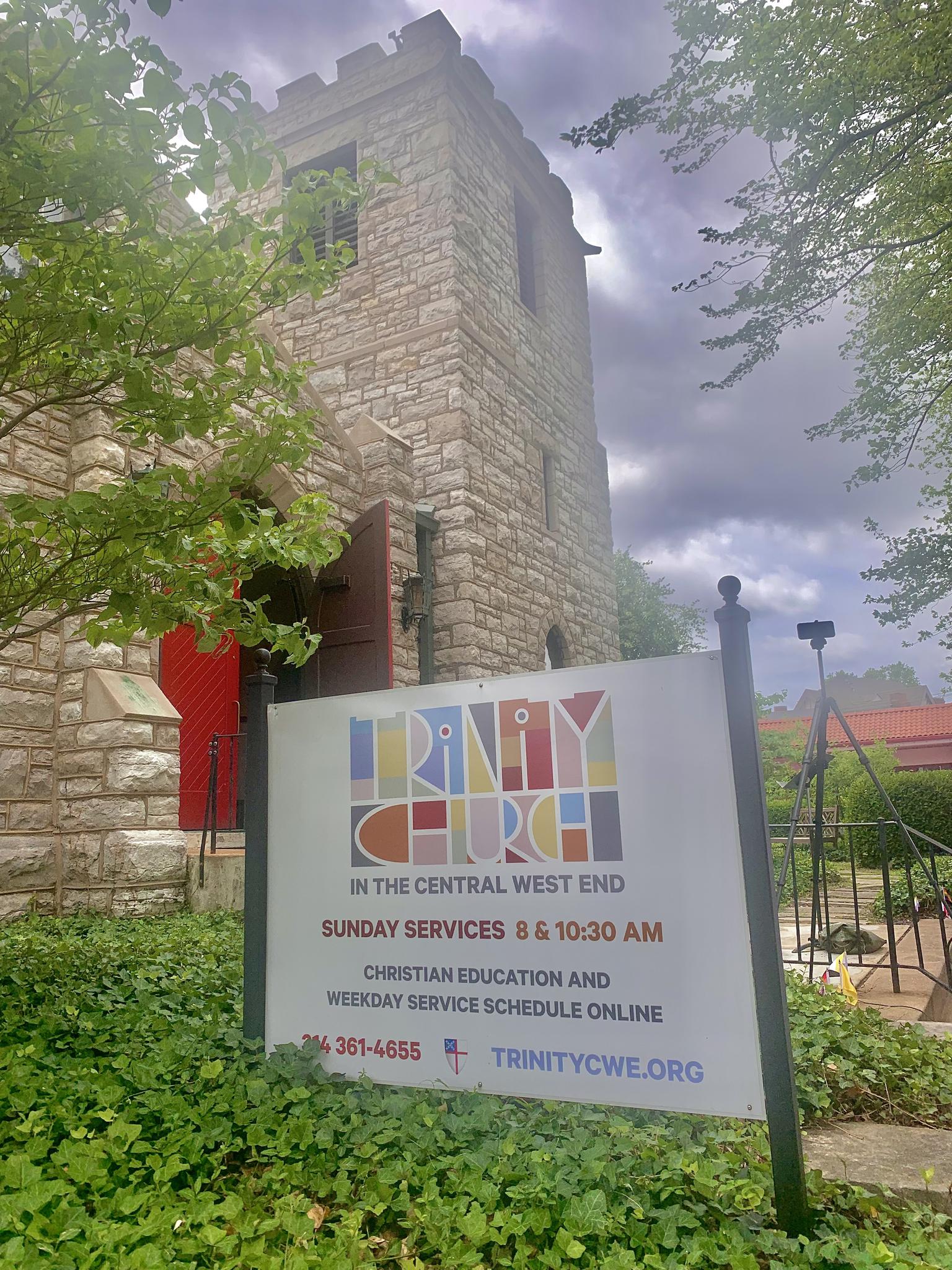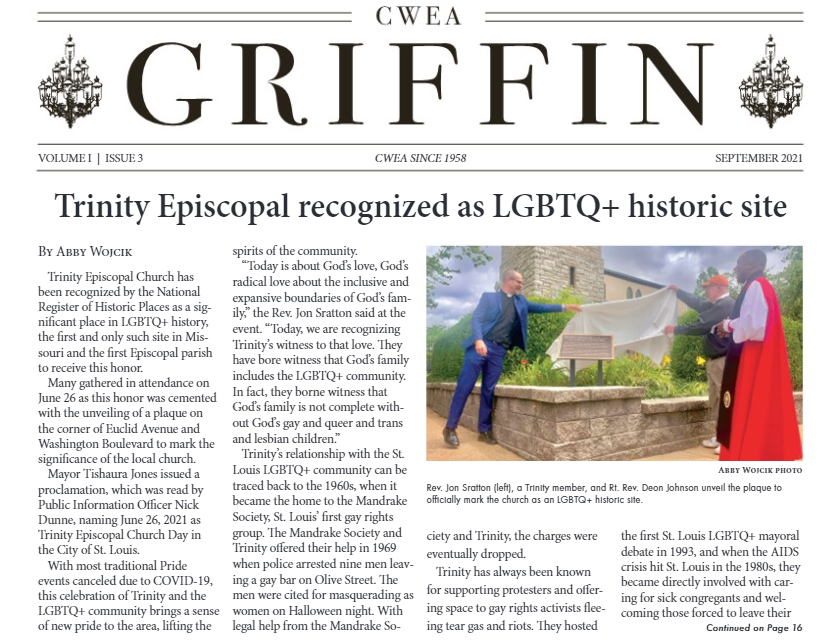Trinity Episcopal recognized as LGBTQ+ historic site
Note: Originally published as print-only in The CWE Griffin Newspaper. Photos by author.

Trinity Episcopal Church has been recognized by the National Register of Historic Places as a significant place in LGBTQ+ history, the first and only such site in Missouri and the first Episcopal parish to receive this honor.
Many gathered in attendance as this honor was cemented with the unveiling of a plaque on the corner of Euclid Ave. and Washington Blvd.to mark the significance of the local church.
Mayor Tishaura Jones issued a proclamation, which was read by Public Information Officer Nick Dunne, naming June 26, 2021 as Trinity Episcopal Church Day in the City of St. Louis. With most traditional Pride events canceled due to COVID-19, this celebration of Trinity and the LGBTQ+ community brings a sense of new pride to the area, lifting the spirits of the community.
“Today is about God’s love, God’s radical love about the inclusive and expansive boundaries of God’s family,” Rev. Jon Sratton said at the event. “Today, we are recognizing Trinity’s witness to that love. They have bore witness that God’s family includes the LGBTQ+ community. In fact, they bore witness that God’s family is not complete without God’s gay and queer and trans and lesbian children.”
Trinity’s relationship with the St. Louis LGBTQ+ community can be traced back to the 1960s when it became the home to the Mandrake Society, St. Louis’ first gay rights group. The Mandrake Society and Trinity offered their help in 1969 when police arrested nine men leaving a gay bar on Olive St. They were cited for masquerading as women on Halloween night. With legal help from the Mandrake Society and Trinity, their charges were eventually dropped.

Trinity has always been known for supporting protesters, offering space to gay rights activists fleeing tear gas and riots. They hosted the first St. Louis LGBTQ+ mayoral debate in 1993, and when the AIDS crisis hit St. Louis in the 1980s, they became directly involved with caring for sick congregants and welcoming those forced to leave their congregations for contracting HIV or AIDS.
Dr. Katie Batza, associate professor at the University of Kansas, was the primary force behind the application to put Trinity on the National Register. When the National Park Service announced an initiative in 2014 with the goal of identifying more places and events in LGBTQ+ histories, Batza knew Trinity was the perfect addition to ensure queer lives are part of the national fabric and storytelling.
“They have always been on the forefront, and they truly live out God’s notion of radical love,” Batza said about Trinity. “What more fitting can this be, than this place where love has come together to change people’s lives?”
Trinity continuously demonstrates their commitment to social justice by standing with and for radicals, revolutionaries and the marginalized. Several members of Trinity spoke of their personal experiences of love and acceptance from the parish. Trinity Food Ministry Assistant Cody Burleson spoke about her extremely difficult experience in first coming out as transgender at Trinity.
“I knew that Trinity was a place where it was going to be alright,” Burleson recalled. “When I was coming out, I came out here first, which is amazing in western Christianity (unfortunately, that is pretty rare). I talked to Jon and a few other people first because I knew that’s what I needed. I knew I needed my foundational community to be able to do this really scary thing. That is Trinity, and I'm forever thankful for it.”

Incoming freshman at Saint Louis University and Trinity member Riley Luebbers echoed this, saying, “From the beginning, I’ve been very welcomed into this faith community. And, as I grew and realized my lesbian identity that did not change in the slightest. It has made a world of difference growing up and seeing LGBT clergy members and outspoken support like this, and to know that my faith and my core identity can coexist.”
With a blessing from the Rt. Rev. Deon Johnson, the 11th bishop of the Episcopal Diocese of Missouri and the diocese's first openly gay bishop, the plaque was unveiled.
“The church in many ways and in many times has gotten it wrong on who God loves and who God doesn’t love,” Johnson stated in his closing remarks, “but today we celebrate where we have gotten it right. Where we as good people of faith have stood up for dignity and personhood of queer people, who when it wasn’t fashionable, or popular, or in some cases safe, this is a testament to the power of love found in this place.”


0 Comments Add a Comment?